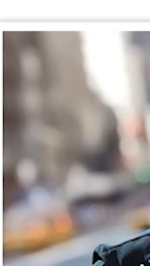Many years ago, while attending training with a large group of law enforcement officers, I made the acquaintance of a sheriff’s deputy who was in one of my classes. We were enrolled in a two-week course that, because of rare bad weather in the area, ended up being the only course left standing on the campus when all other training was cancelled. The small class was convivial and after it was over, we vowed to stay in touch. Naturally, we didn’t. Real life prevailed.
A couple of years later, I opened my newspaper to read where that deputy – a nice, family guy who had been a LEO for many years – had been shot to death by a drug dealer who went to his house and knocked on the door. When the deputy opened it, the criminal opened fire. My recollection of the events isn’t extremely good, but I believe the shooter had been arrested as the result of an investigation conducted by the deputy.
One night, after I had kids of my own, my private, unlisted phone rang and I answered to find that a man I had put in prison was on the other end. He wanted to discuss his case with me. I asked him how he obtained my number – he wouldn’t say – and told him never to call me again, and then hung up. I was shaken by the call because I had jealously guarded my private information. To this day I don’t know how this man found me, but my guess is that information – and lots more personal info – is much easier to come by now in this social networking, anything goes, tell-all atmosphere of cyberspace.
My fears seem to have been confirmed at a conference held recently in Chicago, in which incidents involving law enforcement officers made vulnerable through social networking were discussed. In a disturbing trend, conference presenters apparently believe we have seen just the tip of the iceberg and that things will grow much worse.
Here’s part of the issue: Social media usage is such an accepted part of what we, and our spouses, children and friends, do on a daily basis that few actually think about what they’re doing before jumping in.
The culprits: Facebook, Twitter and generally the creation of accounts that highlight one’s personal life. Some of the features offered by social networking – like Foursquare – are not only dangerous, but also downright foolish.
Foursquare, for example, is an application used with a mobile phone that notes the user’s location and also “locates” the user’s friends and family. There are also programs built into some digital cameras that record the location where the photograph is taken (which would certainly work from an evidentiary point of view), then “tags” the photograph with that location when it’s posted somewhere.
Officers need to think twice before jumping into the social network pool: It is dangerous to put information out there about yourself, your family and your friends. And the way social networking sites like Facebook are set up, your friends can inadvertently lead others to you.
I have a Facebook account. It’s not something I really wanted, but book publishers expect it. I have the account set on the highest privacy settings possible and I check them constantly because Facebook changes all the time.
If you’re not on Facebook and have teenagers, you can pretty much bet that they have a Facebook presence. Their friends do and it’s likely they post photos of your kids along with their own. The chipping away of privacy here is enormous, difficult to manage and dramatic.
I think that social media networking – so good for business and getting the word out about some things – can be personally disastrous for LEOs. I don’t know about you, but I don’t want the people I put in jail knowing my birthday, my kids’ names or how to find me.

Carole Moore
A 12-year veteran of police work, Carole Moore has served in patrol, forensics, crime prevention and criminal investigations, and has extensive training in many law enforcement disciplines. She welcomes comments at [email protected].
She is the author of The Last Place You'd Look: True Stories of Missing Persons and the People Who Search for Them (Rowman & Littlefield, Spring 2011)
Carole can be contacted through the following:
- www.carolemoore.com
- Amazon author page: http://www.amazon.com/-/e/B004APO40S


